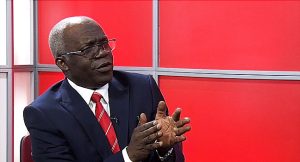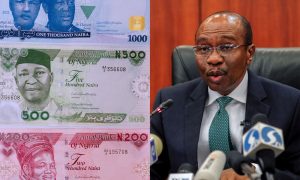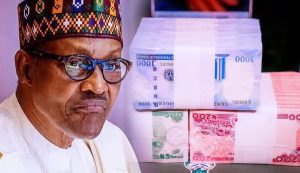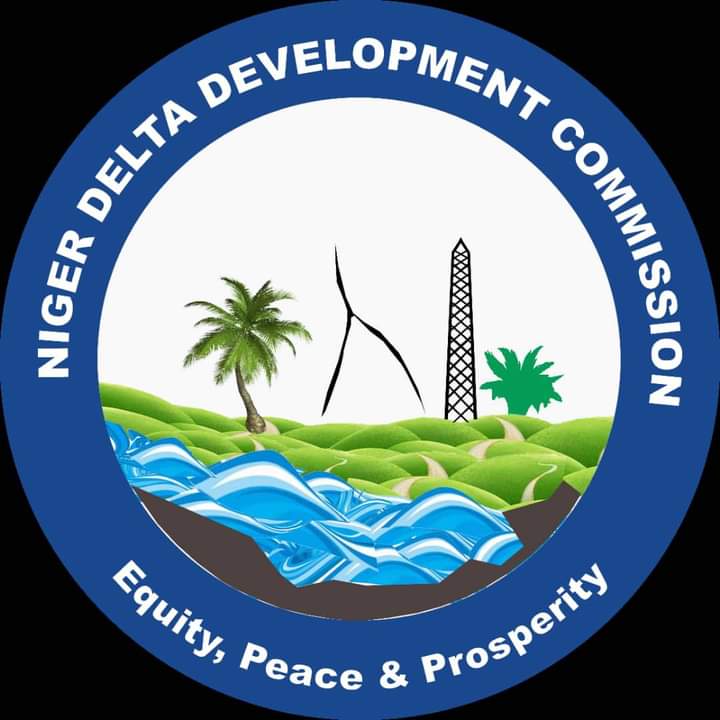By Cmr. Wilbet Ijeoma
Two days ago, President Muhammadu Buhari is an early morning national broadcast announced to the Nigerian people, in what seems to be an Executive Order, that only the old N200 denomination alongside the new naira notes shall be accepted as a legal tender till 10th April 2023 which shall be its return date. This has added to the ranks of authorities jostling for a stay in the Nigerian polity. Presently in what seems to be a legal fireworks barely 1 week to the general elections, we have the CBN Act enabling naira redesign, the interim order of the Supreme Court which is the prime custodian of the Constitution, the Nigerian people who makes the law and for whom the law is made, and now the Executive Order of the President.

The partial relief which came in the middle of an interim order by the Supreme Court for a stay of execution of the CBN policy was to cushion the effect on Nigerians caused by paucity of new naira notes and/or inability to access the new notes or fuse seamlessly to the cashless policy within the meaning and intendment of the naira redesign. Nigerians have been groaning under the pain caused by the deadline as they are unable to get the new notes, while the old notes are being sold to them by Point of Sales (PoS) vendors at exorbitant rates. But what are Nigerians saying in the midst of this controversy and economic quagmire in what seems to be a legal and fiscal battle/fireworks?

Senior Advocate of Nigeria and renowned Human Rights Activist, Femi Falana condemns CBN for disobeying Supreme Court order on Naira swap deadline. He lambasted the CBN for flouting the interim injunction of the Supreme Court suspending the implementation of the 10 February deadline on the use of the old banknotes.
It is in record that the Supreme Court restrained the Federal Government, the CBN and Commercial Banks from implementing the currency swap policy, which made N1,000, N500 and N200 notes no longer legal tender from 10 February 2023. The apex court then fixed Wednesday, 15 February for the hearing of the suit brought by the governments of Kaduna, Kogi and Zamfara State, in which Ondo, Kano and Ekiti States have indicated interest for joinder.
International monetary regulators and advisors, IMF, has lent their voices to the Federal Government of Nigeria suggesting that the old notes be allowed to ease out within a considerable good time, but the Federal Government and CBN seems to pay deaf ears to the international community.
Deriding the position of the CBN and the posture of the President on naira swap deadline, Femi Falana, SAN, affirmed that an Act enabling any government agency is read at all times subject to the constitution and not the other way round. “In a country where the rule of law operates, once the Supreme Court has determined a matter or given an order, it is expected that all and sundry – everybody – will comply with the order”, Falana said.

A statement was credited to the CBN that since it was not a party to the case, it’s not going to comply with the order. The CBN seemed to have absorbed itself from the Supreme Court interim order with a claim that it was not made a party to the suit, perhaps relying on the authority of the Supreme Court in BAKARE V. AJOSE-ADEOGUN SUPRA @ 643 PARAS C-D which has this to say;
“it is trite law that is it only when proper parties are before the Court that the Court will be competent to adjudicate on the suit otherwise the Court shall be incompetent. It is foolhardy not to join a proper party to a suit because any decision taken at his absence would not be binding on him.
The CBN must have also relied on the true meaning of a necessary party whom it deemed itself in this case;
A necessary party to proceedings is one whose presence is essential for the complete determination of the claim before the court; he is a person in the absence of whom the claim cannot be effectually and completely determined. In Re: Mogaji (1986) 1NWLR (Pt. 1) referred to.) (P. 429 paras. C – D); Mbanefo v Molokwu (2014) 6 NWLR (Pt. 1403) 377 at 421, Para A-C, per Fabiyi, JSC., thus rendering the suit incompetent, so also the Court.
The CBN could have been relying on the technicality of Constitution based on the above authorities of the Supreme Court itself, and therefore deemed the interim order made by the Supreme Court incompetent which rendered the court incompetent as well. However, several constitutional lawyers and stakeholders have posited otherwise that nobody should feel they are above the law, even the CBN.
In another development, some unscrupulous bankers along with PoS operators who are their collaborators over-charged customers for transactions. The CBN said it would clamp down on PoS owners, who had turned themselves to payment agents taking undue advantage of this currency transition period to get a better part of the public. The CBN described such unaccredited payment agents as “fifth columnists whose activities constituted economic sabotage, saying that it would carry out sting operations around the country this week to arrest and prosecute them”.
But what is the position of the people who makes the law and for whom the law – the Act and the Constitution – is made for? The people seems to be averse to the CBN policy which has created artificial hardship on the populace as bank credits cannot be liquidated or withdrawn for dispensing basic businesses and households’ needs.
However, some State Governments like that of Ogun, Lagos, Kaduna and Kano States, among others have warned businesses and persons not to reject the old naira notes in respect to the interim order of the Supreme Court which they feel was borne out of the urgency of necessity and within the principle of national interest and economic importance.

However, in what seemed to be a superimposition of the Executive, President Muhammadu Buhari, on Thursday 16th February 2023 in an early morning national broadcast announced and ordered that only N200 old notes would be allowed in the next 90 days, inclusive of the date of such announcement, to ease out as a relief to Nigerians.
How has the people of Nigeria received this announcement and to what extent has this partial relief impacted on the livelihood of Nigerians? What is the position of the Supreme Court with respect to its interim order in this regards? In coming days, this legal fireworks will be demystified.












